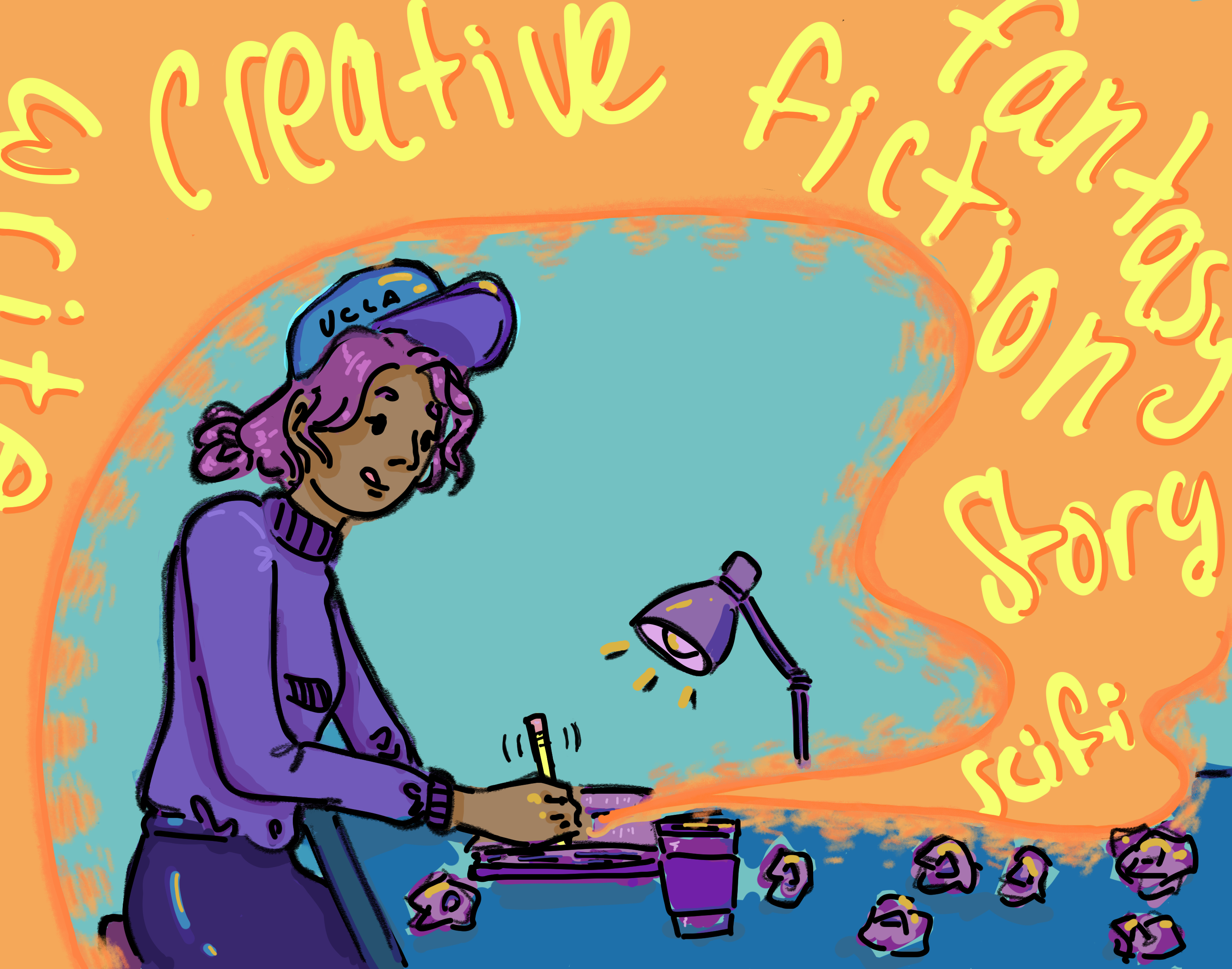Establishing a creative writing minor will expand possibilities for UCLA students

(Nicole Nobre/Daily Bruin)
By Sandra Wenceslao
Jan. 15, 2019 10:46 p.m.
Imagination is a hard thing to come by in one’s undergraduate studies. Putting pen to paper to write something imaginative can be even harder.
Right from the start, incoming students are made to fulfill general education requirements, including science and English literature courses, as well as a bevy of other courses, to complete their major. Some majors offer concentrations where students are able to delve into their more specific major-related interests.
The English department offers a creative writing concentration to students who have successfully completed three creative writing workshops of a given genre, which are writing-intensive, and rely heavily on peer discussion and review. Prior to enrolling in the workshops, students must complete courses that are aligned with those needed for the English major. Once the student completes the lower division coursework needed to be eligible for the workshops, they must apply for admission by submitting a sample of their work.
But being admitted into one workshop doesn’t ensure acceptance into another, so this process must be repeated a minimum of three times for students lucky enough to get in each time. And the creative writing concentration isn’t enough to give students the opportunity to explore their writing interests in depth.
Creative writing workshops cover general writing styles and works of literature – not always exploring topics of fiction like sci-fi or fantasy. The few creative writing workshops offered per quarter also make it difficult for students to enroll.
Frankly, the creative writing concentration isn’t creative enough to give students what they need.
The admission process for the creative writing concentration is subjective. It’s based on a writing sample and a couple of questions such as, “What are your favorite three short stories?” or “What book are you currently reading?” It doesn’t rely on test scores or grades from previous courses. Admission depends on whether the reader likes your story and responses, something that ultimately denies students willing to learn the opportunity to do so.
And still, the admission into one workshop doesn’t guarantee admission into another.
Moreover, a large number of students apply for around fifteen spots, with about two workshops offered per quarter. This creates an environment of competition and failure. Students who are denied acceptance may choose not to reapply. Those rejected can be left believing their writing samples or styles aren’t up to par with the rest of their peers’.
Making the concentration into a minor would result in the expansion of the entire department while easing the enrollment process for students. The admission process would happen only once, instead of the multiple times required for the current concentration, and rely on a more standard process, such as stipulating literature-based prerequisites.
Sarah Garcia, a fourth-year English student, said if there was a creative writing minor, there would be more classes available, and she wouldn’t have had to submit an application to three different workshops.
“(I would) hope I get in and hope I’m able to get these classes needed for the concentration,” she said.
In addition to creating more spots in classes, a minor can provide more detailed and specific course options. Creative writing students currently have two workshop options: short story and poetry. Very few workshops touch on specific genres or go in depth into any given literature, leaving students unable to explore fully the world of creative writing. A minor can result in a wider selection of diverse classes that specifically revolve around topics such as queer or multiethnic literature.
Christine Nguyen, a fourth-year English student, said while she has fulfilled all three workshop requirements for the concentration, she would still like to take additional courses. However, she isn’t looking to reapply because she doesn’t want to take up a spot needed by other students.
“I think it would be great to have more specific classes because my interests may not mesh with the interests of other people in the workshops, so they may not be able to give me as much good-quality feedback,” Nguyen said.
The English department has been working on creating a creative writing minor. Fred D’Aguiar, director of the creative writing department, said they hope to see a minor implemented within the next two to three quarters – after earning the stamp of approval from the needed academic committees.
The department also is trying to allow students to find cross-listed courses that satisfy the minor, such as film or Chicana/o classes, D’Aguiar said.
UCLA should support the English department’s efforts to expand creative writing. Not having the minor diminishes the opportunity for soon-to-be UCLA graduates to integrate creative writing into their diplomas.
A creative writing minor might seem unnecessary because it fulfills the same needs as the existing concentration. Yet, students outside of English or the American literature major, like STEM students, are unable to claim this area of study. A concentration also seems ill-fitting to any student who sees creative writing as a viable career option. A minor, on the other hand, can prepare any students for a future in writing, whether for their graduate school or career aspirations.
Having a minor would allow students to see the word “minor” on their diploma instead of just a series of elective courses scrawled across their transcripts.
It’s time to lend everyone a pen and paper.


